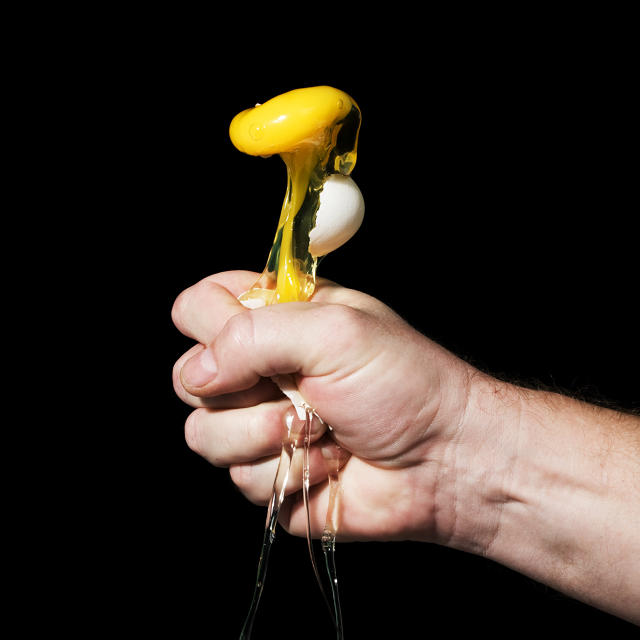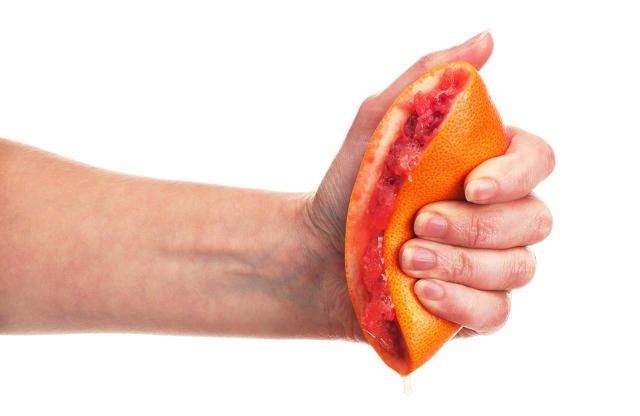My dad used to say that you could tell a lot about a man by the strength of his handshake. A strong grip showed he was engaged and respectful; a weak one, that he wasn’t much bothered by your presence. It was important to shake strongly, he said, and look a person in the eye.
Now, it turns out that the strength of a person’s grip is indicative of more than manners: It shows how long a person might have to live. New research shows a surprisingly strong relationship between grip strength, disease, and mortality, with stronger grips pointing to longer lifespans.
Researchers used an existing sample of almost 140,000 adults aged 35 to 70 in 17 countries. At the beginning of the study period, the participants were tested for grip strength using a handheld dynamometer, then their health was followed for an average of four years.
 Eremin Sergey via Shutterstock
Eremin Sergey via Shutterstock
The study shows that every 5 kilogram drop in grip strength (the force exerted when someone squeezes as strongly as possible) means a 16% increased risk of death, a 17% greater risk of death from a cardiovascular cause, and a 17% greater risk of death for a non-cardiovascular reason.
“These findings suggest that grip strength is an excellent indicator of one’s risk of death,” says lead author Darryl Leong, an assistant professor at McMaster University in Canada. “The relationship between grip strength and all-cause mortality was stronger than the relationship between systolic blood pressure—a well-recognized cardiovascular risk factor—and all-cause mortality.”
 DenisNata via Shutterstock
DenisNata via Shutterstock
Leong says clinicians should consider testing for grip strength alongside other vital signs. “Low muscle strength should alert the clinician of health care worker to an individual who may be at risk of poor outcomes and death,” he says. “They may benefit from closer surveillance and particular attention to the lifestyle and risk factors.”
Of course, it could just be that stronger people are less susceptible to disease anyway, meaning that someone’s grip strength is less predictive than illustrative. But the study tries to deal with such confounding factors by statistically adjusting for existing illnesses. The relationship was still there, Leong says.
Moreover, there could be cultural reasons why someone may shake hands less strongly. The study showed that south Asian people have weaker grips generally than people in Europe, who have the strongest. But, again, those differences didn’t invalidate the main overall message: in any particular place, the stronger the grip, the healthier the person.
[Top Photo: Sung-Il Kim/Corbis]